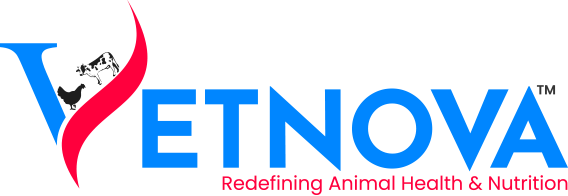Smart Nutrition for Smarter Farming: Bridging Natural and Scientific Feed Additives for Better Animal Health
In modern livestock farming, nutrition isn’t just about feed. It’s about precision, performance, and sustainability. Farmers today rely on feed additives for animals not merely to boost growth but to enhance health, digestion, and feed efficiency. As the livestock industry evolves, there’s a growing conversation around the choice between natural feed additives and scientifically formulated ones both playing crucial roles in optimizing animal productivity.
This article explores the two approaches, compares their benefits, and highlights how a balanced strategy leads to better outcomes for farmers and the environment.

Why Feed Additives for Animals Are Essential to Modern Farming?
Livestock nutrition has advanced far beyond simple feeding practices. Feed additives whether phytogenic, mineral, or amino acid-based are now essential components of animal diets. These additives ensure animals receive the right nutrients for optimal metabolism, immune health, and productivity.
From poultry and cattle to aquaculture, feed additives for animals help address the specific nutritional gaps in natural feed. They support:
- Better digestion and nutrient absorption
- Improved feed conversion efficiency
- Enhanced immunity and gut health
- Higher milk yield, egg quality, and growth rate
With rising feed costs and climate variability, the use of advanced additives allows farmers to do more with less a principle that aligns with sustainable and profitable farming.
Understanding Natural Feed Additives — Nature’s Original Growth Support
Natural feed additives refer to ingredients derived from plants, herbs, essential oils, and other organic sources. They are gaining popularity due to global consumer demand for cleaner and residue-free animal products.
Common examples include:
- Herbal extracts (such as oregano, garlic, or turmeric)
- Probiotics and prebiotics for gut balance
- Enzymes and organic acids to support digestion
- Phytogenic feed additives that act as natural growth promoters
These additives are valued for their antioxidant, anti-inflammatory, and antimicrobial properties — helping animals naturally fight stress and improve gut performance.
However, they may vary in potency depending on the source and consistency of the raw materials. This makes precise formulation and quality control essential to achieve predictable results.
Scientific Feed Additives — Precision, Performance, and Consistency
While natural additives rely on organic potency, scientific feed additives are developed through controlled formulation and research-driven innovation. They include amino acids, vitamins, trace minerals, enzymes, and other scientifically validated compounds that directly influence performance and health outcomes.
Examples include:
- Rumen-protected amino acids for dairy cattle
- Chelated minerals that improve bioavailability
- Electrolytes for poultry hydration
Unlike purely natural additives, these are designed for precision nutrition, ensuring animals receive consistent dosages and measurable benefits. For instance, amino acid balancing in cattle feed can significantly improve milk yield and reduce nitrogen waste, supporting both productivity and sustainability.
Vetnova’s solutions fall under this scientifically advanced category, offering a range of feed additives for animals that combine efficiency with safety, helping farmers achieve higher performance without compromising animal welfare.
Natural vs. Scientific Feed Additives: Finding the Right Balance
Both natural and scientific additives have distinct advantages. Instead of choosing one over the other, smart farming integrates both using data-driven formulation to maximize the strengths of each.
Both natural and scientific additives have distinct advantages. Instead of choosing one over the other, smart farming integrates both using data-driven formulation to maximize the strengths of each.
| Feature | Natural Feed Additives | Scientific Feed Additives (Vetnova-type) |
| Source | Plant-based, organic origin | Scientifically formulated nutrients |
| Primary Function | Immunity, gut health, stress resistance | Growth, production efficiency, nutrient optimization |
| Consistency | May vary due to raw material quality | Highly stable and controlled |
| Cost | Lower initial cost | Higher but delivers measurable ROI |
| Best Used For | Preventive health and long-term wellness | Targeted performance improvement |
| Sustainability | Eco-friendly, consumer-preferred | Supports efficiency and waste reduction |
When strategically combined, these approaches enhance both feed efficiency and animal health. For example, using a blend of phytogenic feed additives for gut modulation along with scientifically formulated chelated minerals ensures balanced nutrition across different livestock species.
Know more about Feed Additives- Contact
Integrating Innovation — Vetnova’s Role in Smarter Animal Nutrition
Vetnova’s philosophy centers on smart nutrition — using science-backed formulations that enhance efficiency, productivity, and overall animal well-being. Its product range includes amino acid complexes, chelated mineral mixtures, and gut health enhancers — each designed to complement natural nutritional processes rather than replace them.
By integrating precision-based additives with nature-compatible ingredients, Vetnova helps farmers adopt sustainable solutions that deliver consistent results across poultry, cattle, and aquaculture sectors.
This approach ensures that livestock receives complete, balanced nutrition year-round — supporting better feed conversion, reduced stress in harsh climates, and improved profitability for producers.
Conclusion -Towards a Balanced, Science-Driven Future in Feed Additives
The debate between natural feed additives and scientific feed additives is no longer about competition — it’s about collaboration. The future of animal nutrition lies in hybrid feeding strategies, where natural compounds support resilience and scientific additives ensure performance precision.
By leveraging research-based solutions like Vetnova’s feed additive range, farmers can ensure their livestock thrive sustainably, efficiently, and profitably — every season of the year.
Herbal extracts, probiotics, prebiotics, and essential oils are among the most common natural feed additives used for improving gut health and immunity.
Not always. While they support immunity and stress management, scientific additives are needed for precise nutrient balance and productivity.
Yes. Phytogenic feed additives enhance gut health and immunity across poultry, aquaculture, and ruminant species.
Yes. Both natural and scientific feed additives can reduce dependency on antibiotics by improving animal immunity and gut function.
Selection depends on farming goals- natural additives for long-term health, scientific ones for targeted productivity.
Vetnova formulations are research-based, focusing on bioavailability and performance efficiency while maintaining animal welfare and environmental responsibility.
